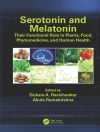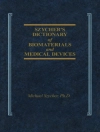Now in its revised and updated second edition, this text provides a practical way of teaching genetic counseling helping skills. The contents can be used by genetic counselor educators and supervisors to facilitate student professional development, including gaining knowledge about basic helping skills; practicing using the skills specific to genetic counseling services; and understanding one’s self as a professional in training. New topics include: the Reciprocal-Engagement Model (REM) of genetic counseling practice; research findings about genetic counselor professional development, values, compassion fatigue, burnout, and distress; expanded discussion of patient factors; and more attention to cultural issues. Every chapter contains updated literature, and both revised and new structured activities and written exercises.
Salient features of this second edition include:
• An “active” and “cooperative” pedagogical approach, with numerous structured activities and exercises emphasizing student self-reflection and engagement with core content.
• Inclusion of skills which comprise key elements within three competency domains for accreditation of genetic counseling training programs in North America: genetics expertise and analysis; interpersonal, psychosocial, and counseling skills and assessment; and professional development and practice.
• Content grounded in a widely-cited, empirically-derived model of genetic counseling practice.
• Inclusion of patient scenarios and roles for skills practice based on genetic counseling cases and reflecting recent developments in genetic knowledge, testing, and technologies.
Table of Content
Guidelines for Book Users: Instructors, Supervisors, and Students.- Overview of Genetic Counseling: History of the Profession and the Reciprocal Model of Practice.- Listening to Patients: Attending Skills.- Listening to Patients: Primary Empathy Skills.- Gathering Information: Asking Questions.- Structuring Genetic Counseling Sessions: Initiating, Contracting, Ending, and Referral.- Collaborating with Patients: Providing Information and Facilitating Patient Decision Making.- Responding to Patient Cues: Advanced Empathy and Confrontation Skills.- Patient Factors: Resistance, Coping, Affect, and Styles.- Providing Guidance: Advice and Influencing Skills.- Counselor Self-Reference: Self-Disclosure and Self-Involving Skills.- Genetic Counseling Dynamics: Transference, Countertransference, Distress, Burnout, and Compassion Fatigue.- Professionalism: Ethically-Based Reflective Practice.- Appendix A: ACGC (2015) Practice-Based Competencies.- Appendix B: NSGC Code of Ethics (2017).
About the author
Patricia Mc Carthy Veach, Ph D, LP, Emerita Professor, Department of Educational Psychology, University of Minnesota, Roseville, MN, USA
Bonnie S. Le Roy, MS, CGC, Director, Graduate Program in Genetic Counseling, University of Minnesota, Department of Genetics, Cell Biology and Development, Minneapolis, MS, USA
Nancy P. Callanan, MS, CGC, Director, Genetic Counseling Program, University of North Carolina at Greensboro, Greensboro, NC, USA












